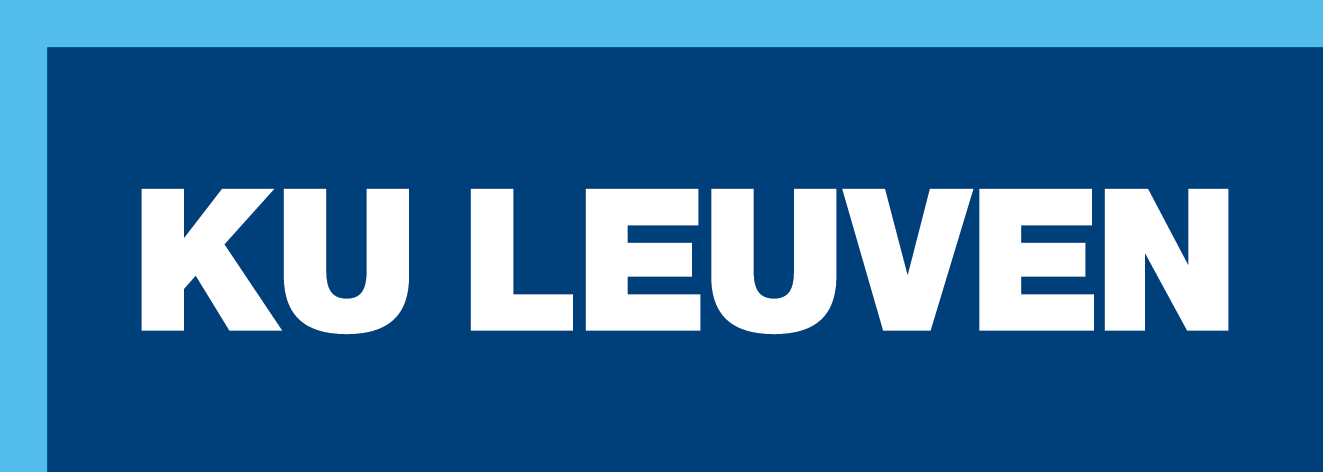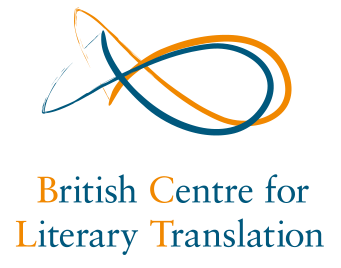| Levels (5) | LT1 | LT2 | LT3 | LT4 | LT5 |
| beginner | advanced learner | early career professional | advanced professional | expert |
| Competences (8) |
Descriptors ↓ |
Descriptors ↓ |
Descriptors ↓ |
Descriptors ↓ |
Descriptors ↓ |
| 1. Transfer Competence | | | | | |
|---|
The transfer competence consists of the knowledge, the skills and the attitude needed to translate texts into the main language at a required level. It comprises the ability to recognize problems of textual understanding and text production and the ability to solve these problems in an appropriate way, and to account for the final result. |
|---|
| understanding of source texts | can understand source texts | can understand literary source texts | can understand literary source texts in a detailed way | - | - |
| identification of translation problems | can identify translation problems | can identify literary translation problems | can solve literary translation problems in several ways | - | - |
| familiarity with translation strategies | knows several translation strategies | can see the implications of translation strategies and can adopt them | can apply strategies in a purposeful way | - | - |
| production of target texts | can produce a target text | can produce a literary target text | can produce literary target texts that meet publication standards | - | - |
| justification of translations | - | can justify individual choices and decisions | - | can justify their translations as a whole | - |
| translation approach | - | can distinguish between different translation approaches | can outline their own translation approach | can adopt a translation approach | can reflect on their own approach in a preface or a commentary to a translation |
| literary creativity | - | - | develops ability to find solutions and make choices beyond learned procedures and methods | can find solutions and make choices beyond learned procedures and methods | optimal creative ability |
| 2. Language Competence | | | | | |
|---|
Language competence refers to the grammatical, stylistic and pragmatic mastering of the source language and the target language especially in the domains of reading and writing. |
|---|
| source language competence | CEF B2 for reading | CEF C1 for reading | - | - | - |
| target language competence | CEF C1 for reading and writing | CEF C2 for reading and writing | - | - | - |
| literary language | can recognize (features of) literary language | can adopt literary styles | can adopt an appropriate literary style | can master several types of literary style appropriately | - |
| language variation | can recognize language varieties | can apply language varieties | can adopt an appropriate language variety | - | - |
| 3. Textual competence | | | | | |
|---|
Textual competence consists of the knowledge of literary genres and styles and the ability to apply this knowledge in the analysis of source texts and the production of target texts. |
|---|
| analyzing texts | can analyze source texts | can analyze literary source texts | can make translation-relevant analyses of literary texts | - | - |
| familiarity with literary genres | knows genre tradition of the target literature | knows genre tradition of the source literature | can handle specific genres and text types | specializes in at least one specific genre | - |
| familiarity with the stylistic features of a source text | - | can recognize stylistic features of source texts | can evaluate different stylistic features | - | - |
| application of literary techniques | - | can respond to specific textual challenges creatively | can apply literary techniques | can apply complex literary techniques | - |
| production of target texts with stylistic features | - | can produce a target text in a certain style | can find solutions and make choices creatively | can produce target texts in different styles | - |
| editorial skills | - | can revise own texts | can revise texts up to publication standards | can edit texts up to publication standards | - |
| machine-translated / AI-generated output | - | is familiar with developments in machine translation (including AI) for literary texts | can evaluate machine-translated / AI-generated output | - | - |
| 4. Heuristic competence | | | | | |
|---|
Heuristic competence covers the ability to gather in an efficient way the linguistic and thematic knowledge needed for translation; the ability to develop strategies for an efficient use of (digital) information sources; the ability to apply textual criticism and to differentiate between text editions. |
|---|
| searching for reference material | can find reference material | can find specific reference material | can use reference material in a way relevant for translation | - | - |
| accessing online resources | can apply digital search strategies | can apply digital search strategies relevant for translation | - | - | - |
| differentiating between text editions | - | can distinguish between text editions | can use text editions in a translation-relevant way | - | - |
| applying critical apparatus | - | can use critical apparatus | - | - | - |
| using CAT tools | - | is familiar with CAT tools | can use CAT tools | - | can contribute to the development of CAT tools for literary translation |
| 5. Literary-cultural competence | | | | | |
|---|
Literary-cultural competence is the ability to apply knowledge about the source and target literature and culture while making a literary translation; it also includes the ability to handle cultural differences and the ability to distinguish between literary movements and schools, periods and styles. |
|---|
| situation of source text | can situate a source text within source culture | has a general knowledge about literary traditions in source culture | knows literary tradition of the source culture well | - | - |
| situation of target text | - | develops ability to situate a target text within the literary system of the target culture | can situate their own translation in the target culture | knows literary translation tradition in the target culture | contributes to the literary translation tradition in target culture |
| understanding of culture-specific elements | can recognize culture-specific elements | can recognize culture-specific elements in a way relevant for translation | can effectively deal with culture-specific elements | - | - |
| intercultural skills | can recognize differences between source culture and target culture | - | can effectively deal with differences between source culture and target culture | - | - |
| intertextual skills | - | can recognize intertextual references | can effectively deal with intertextual references | - | - |
| 6. Professional competence | | | | | |
|---|
Professional competence is the ability to gather knowledge about the working field and to show the appropriate attitude expected by the working field. |
|---|
| familiarity with professional associations | - | knows professional associations | meets the criteria to join a professional association | can take an active role in professional associations | - |
| familiarity with publishing | - | has broad familiarity with the publishing landscape and the publishing process | knows publishers of literary translations; knows editorial imprints/lines (literary publishing, children's books, etc.); can write publishing reports | knows editorial policies and selection and programming criteria | knows the criteria and can contribute to the creation of an editorial imprint/line |
| familiarity with literary funds | - | is familiar with literary funds | can apply for assistance from literary funds | can regularly apply for assistance from literary funds | - |
| familiarity with legal aspects | is aware of legal aspects | knows the basic rules concerning copyright, contractual law, legal liabilities, fees, etc. for translators | can negotiate contracts | - | - |
| familiarity with ethical aspects | is aware of ethical aspects | can reflect on ethical issues | knows and can apply professional ethical codes and standards in target and source culture | can contribute to the development of professional ethical codes and standards | can express authoritative ethical opinions |
| familiarity with current translation approaches | knows literary criticism in the source culture | knows models and traditions of translation criticism of the target culture | can keep up with the translation debate | takes part in the translation debate | - |
| networking skills | - | can initiate networking activities | can establish a network and use the benefits of it | can actively use a network to promote translators and translation | - |
| didactic skills | - | - | has basic didactic skills | has full didactic skills | can teach teachers |
| further education | - | - | takes refresher courses | - | - |
| entrepreneurial skills | - | is familiar with business models for translation | can implement a business model as a professional literary translator | - | - |
| professional skills | - | can meet deadlines | can organize their own work | can acquire translation tasks and write paratexts | - |
| 7. Evaluative competence | | | | | |
|---|
Evaluative competence is the ability to assess and evaluate translations, the proficiency of translators and the translation process. |
|---|
| evaluative skills | can justify choices made in translations | can estimate quality of translations by others | can judge quality of translations by others | can systematically assess translations | - |
| selection of types of assessment | - | - | knows types of assessment | can select appropriate types of assessment | can apply appropriate types of assessment |
| comparison of translations | can recognize differences between translations | can interpret differences between translations of the same text | can evaluate differences between translations | can practise translation criticism | - |
| assessment of translators' proficiency | - | - | develops ability to assess translators' proficiency | can assess translators' level | can pass on knowledge |
| self-reflection | can reflect on own translations | - | can make an estimation of their own literary translation competence | - | makes an optimal assessment of their own level of competence |
| 8. Research competence | | | | | |
|---|
Research competence is the ability to conduct methodical research in order to inform translation practice. |
|---|
| research methodologies | - | can apply research methodologies | - | - | - |
| familiarity with translation techniques | - | can distinguish and name existing translation techniques | - | - | - |
| familiarity with translation theories | - | knows several theories of translation | - | - | - |
| academic skills | - | can analyze translations on an academic level | - | - | - |
| familiarity with schools of thought in translation studies | - | knows schools of thought in translation studies | begins to make original contributions to the disciplinary debate | makes complex contributions to the disciplinary debate | makes innovative contributions to the disciplinary debate |
 Framework
of reference for the education and training of
literary translators
Framework
of reference for the education and training of
literary translators








